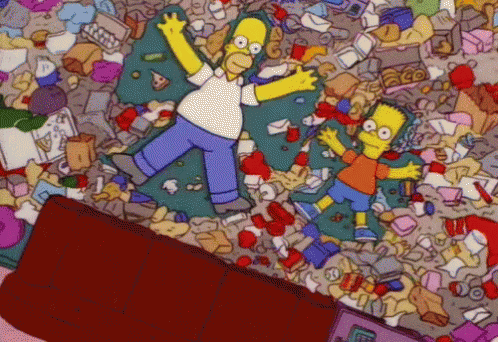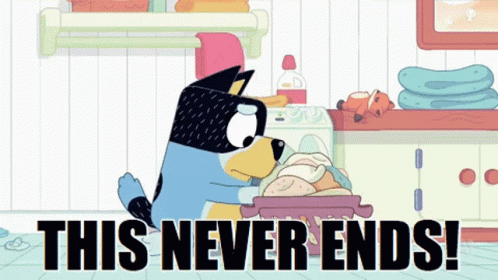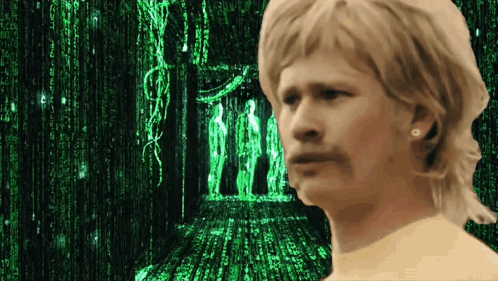Dadibaajim, lets clear some space

I begin my laughing at myself.
You'll recall that I'm a 58 year old woman who still gets Christmas money from her mother, and that last year I spent that Christmas money on a teapot. This year I bought some Ikea shelving from somebody on Facebook marketplace and a laundry tub/cabinet combo from Costco. Hashtag adulting right?
It started when one of my kids decided to come home for the winter and turned his attention to our hot mess of a laundry room. That's the room where everything accumulates: the stuff I don't know where to put anywhere else and the stuff I use intermittently. I'm sure you've got a space like that too. Two of my three kids don't, they're minimalists and discard things they don't need very quickly. My oldest is more like his parents. Anything that could possibly be useful at some future date gets saved. Mostly that means accumulating things that aren't ever useful, but just often enough you or somebody you know needs something and as long as you can find it, that justifies keeping everything else. You just never know.

It's best to have somebody else helping you when you decide to dejunk (dejunque if you have fancy things) a room, and not just because it's a lot of work and nice to have some help. There's real value in enlisting the help of somebody who is not afraid to shame you with a look. Last time I did this the daughter of a friend helped me and I got rid of things that I wanted to keep but since I didn't want to admit that I wanted to keep them, off they all went and you already know that I don't miss any of it. But a couple of years of yard sales (going, not hosting) later and we're back at it. This time I have the excuse of being very busy writing my second book to avoid having to do this myself. Since most of that stuff is things that I've accumulated and therefore have some investment in, and since I didn't want to have to consent to every single thing I told them that I trusted their judgement and to just get rid of whatever could be replaced by a trip to the dollar store or FB marketplace, and reserved the right to choose two items from any carload destined for the thrift store.
As with all projects, it became "if you give a mouse a cookie: home renovation edition." I'm sure you're familiar with the process. See, the dresser was being cleaned out and gotten rid of and that one shelf is too unstable and while we've got things out of the way we might as well drywall and paint that exposed wall but only that wall because it's a lot of work, and well since that's done we'll do a quick job of beadboard on the wall with the washer and dryer and you know what let's just drywall that too to keep it consistent and then I found some shelves that matched the shelves that are already along one wall and on a trip to the commercial Costco (it's the only one that carries the powdered coconut milk I needed) happened across a nice laundry tub with a built in cabinet and here we are. New Year new laundry room.

Dadibaajim. Clearing space.
We do this mentally too, which is why I'm using this Ojibwe word for the first chapter of A Thousand Worlds (remember not to get attached to that name, but it does have a nice sound to it) because if we're going to think about Indigenous literatures then first we need to clear some space and that can look all kinds of ways. A friend of mine was a teacher-librarian for a number of years and over the time that she was in that role she cleared space on the shelves, removing books with content that reinforced harmful tropes about permanent minorities, a topic I wrote about after reading Fanon and Mahmood Mamdani. In a nutshell? Nation-states are made up of citizens and non-citizens, people who belong and people who don't, people who are normal and people who have to be accomodated. This applies not only to people who are racially marginalized but those whose religious beliefs mean that their holy days are not holidays, those who need legislation to force buildings to be accessible (but with lots of exceptions). As soon as you have citizens you need criteria and in Canada and the US the OG citizens were white landowning men who were landowning for reasons which means that everybody else needed constitutional ammendments in order to be considered citizens and for a while people actually had to go to court to prove they were white because it was a legal category.
That's how you get permanent minorities. Everybody who had to be added was added for reasons and that makes them permanent minorities because what white landowning men give, white landowning men can take away. It has nothing to do with how many of them there are. So that's what Liz did. She took out books that reinforced those ideas about who belongs and who has to be accomodated and then once she had cleared some space, she added in books that told other stories about people and the world we all live in. She did it not just because those kids in her classroom needed to see themselves in the books they read but also for the sake of kids who needed to see somebody other than themselves as the hero of the story.
And we all need that, which is why the first chapter of my second book is about that clearing of space. Clearing our bookshelves, clearing our workspace, clearing our heads. Getting rid of the junk and junque, not just to have wide open spaces but to be intentional about what goes back in there. To fix things up rather than just cover them up and yeah, it does kind of take on that "if you give a mouse a cookie" vibe because once you start pulling on those threads some things unravel completely. Or to use a different metaphor, once you become alert to a new way of seeing something, you start to see it everywhere.

So that's what I've been up to and welcome to our new home on ghost, I hope that your migration was smooth. I did try to make sure that nobody got double-billed by substack and ghost and was assured by the nice people at ghost that it hasn't happened in three years of doing this. All the posts have migrated over so you'll be able to find them here on the new site.
See you next time!
